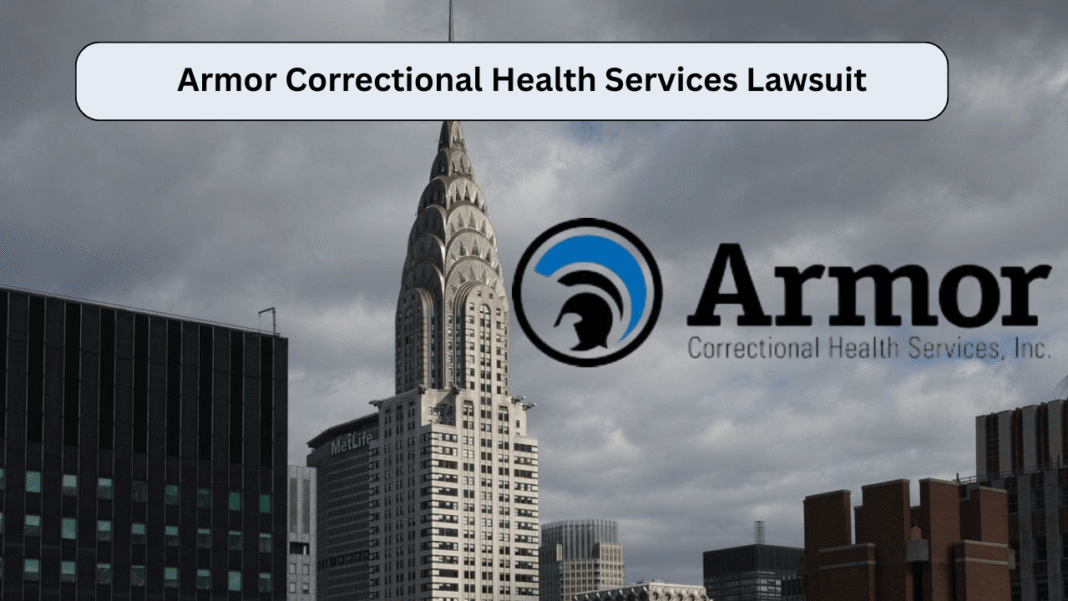When you think of healthcare, you imagine comfort, compassion, and a system designed to keep people safe. But what happens when that system is placed inside a prison—out of public view, behind concrete walls and locked doors? That’s where Armor Correctional Health Services comes in, and the story isn’t pretty.
This Florida-based private healthcare company was supposed to provide inmates with medical and mental health services. Instead, it’s been at the center of multiple lawsuits, shocking allegations, and heartbreaking stories of neglect. Today, we’re digging deep into the Armor Correctional Health Services lawsuit, exploring the troubling patterns, the devastating human toll, and what it all means for the future of prison healthcare in the U.S.
A Look at Armor Correctional Health Services
Founded back in 2004, Armor Correctional Health Services set out with a mission: deliver quality healthcare to people behind bars. With contracts spanning Florida, New York, and Wisconsin, the company quickly became a major player in the prison healthcare industry.
But while the mission sounded noble, reality told a different story. Over the years, Armor found itself repeatedly accused of failing to provide even the most basic medical care. These weren’t just complaints—they turned into lawsuits, court rulings, and, tragically, preventable deaths.
The Wave of Legal Challenges
From the start, Armor has been in and out of courtrooms. Allegations against the company cover everything from medical malpractice and wrongful deaths to fraud and broken contracts.
One case that stands out is the 2016 lawsuit from the New York Attorney General. Armor was accused of defrauding taxpayers and failing to provide adequate healthcare in Nassau and Niagara County jails. The numbers were grim—14 inmate deaths between 2011 and 2016, with seven directly tied to serious lapses in medical care.
And it didn’t stop there. In Florida, a jury hit Armor with a staggering $16 million medical malpractice verdict, driving home just how serious these failures were.
The Terrill Thomas Case: A Heartbreaking Story

If one case puts a human face on Armor’s failures, it’s that of Terrill Thomas.
Thomas, a 38-year-old man locked up in a Milwaukee jail, died from dehydration after being denied water for seven straight days. Think about that for a second: seven days without water. His death wasn’t an accident—it was a consequence of neglect.
A jury found Armor criminally liable, marking one of the rare times a private healthcare company faced real accountability for prison abuse and neglect. Thomas’s case stands as a gut-wrenching reminder of what’s at stake when inmate healthcare is mishandled.
Patterns Too Disturbing to Ignore
Sadly, Thomas’s case isn’t an isolated tragedy. Investigations and lawsuits have revealed a disturbing pattern within Armor’s operations:
- Delayed or Denied Medical Care: Inmates often waited dangerously long for treatment—or didn’t receive it at all.
- Mental Health Failures: Proper evaluations and treatments were frequently skipped, leaving mentally ill inmates to deteriorate.
- Shady Record-Keeping: Reports surfaced of falsified or incomplete medical records, blocking transparency and accountability.
- Chronic Understaffing: Facilities often lacked enough trained medical staff, putting both routine and emergency care in jeopardy.
It’s a picture that raises an unsettling question: if healthcare in prisons is left to profit-driven companies, who ensures that human lives come before bottom lines?
If you’re interested in how regulatory oversight plays out beyond prison healthcare, you might also want to read our detailed report on the KVK-Tech Warning Letter by FDA: Major Setbacks Revealed. It highlights how lapses in compliance can have far‑reaching consequences, offering another perspective on accountability within critical industries.
The Heavy Financial Toll
Armor’s failures haven’t just cost lives—they’ve cost money, too.
In Florida, the $16 million verdict was one of the largest malpractice awards tied to prison healthcare. Meanwhile, Milwaukee County paid $1.05 million after Armor staff denied medication to a mentally ill detainee.
These payouts don’t just hit Armor—they drain public funds. Taxpayers end up footing the bill when private providers fail.
The Bigger Picture: Privatized Prison Healthcare
Supporters argue that privatization can save money and streamline operations. But critics point out that when profit is the goal, quality of care often takes a backseat. And with cases like Armor’s piling up, those critics are hard to ignore.
The truth? Without strict oversight, private prison healthcare companies have little incentive to put inmate welfare above cost-cutting.
Demands for Reform Grow Louder
With every new lawsuit and every tragic headline, calls for reform grow stronger. Advocates, lawmakers, and watchdog groups are pushing for big changes, including:
- Stricter Oversight: More monitoring of private healthcare providers to ensure they meet basic medical standards.
- Full Transparency: Mandatory disclosure of inmate healthcare outcomes and incidents.
- Real Accountability: Consequences—serious ones—for companies that fail inmates.
These reforms aim to stop the cycle of neglect and finally put inmate health where it belongs—front and center.
How Armor Stacks Up Against Other Providers
Armor isn’t the only company in this business, but its track record raises some of the biggest red flags. Take a look:
| Provider | Number of Lawsuits | Notable Incidents | Contract Terminations |
|---|---|---|---|
| Armor Correctional Health Services | Multiple | Terrill Thomas death, falsified records | States including Virginia & Oklahoma |
| Corizon Health | Hundreds | Numerous malpractice claims | Several states terminated contracts |
| Centurion | Fewer reported | Generally better compliance | Retains multiple contracts |
The takeaway? While no company is spotless, Armor’s record is among the most troubling.
Conclusion: Time for Real Change
The Armor Correctional Health Services lawsuit isn’t just about one company—it’s about a broken system. A system where inmates, already stripped of freedom, are also denied basic medical care. A system where profit too often trumps humanity.
If there’s one message from these lawsuits, it’s clear: reform isn’t optional—it’s urgent. Transparency, oversight, and accountability must be non-negotiable in prison healthcare. Because in the end, justice isn’t just about punishment—it’s also about care, dignity, and the right to basic human treatment.
Frequently Asked Questions (FAQ)
Q1: What is Armor Correctional Health Services?
A Florida-based private company that provides medical and mental health care to inmates in U.S. prisons and jails.
Q2: Why has Armor been sued so often?
The company has faced accusations of medical malpractice, neglect, and contract violations that led to preventable inmate deaths and injuries.
Q3: What was the result of the New York lawsuit?
Armor settled for $350,000 and was banned from bidding on health services contracts in New York for three years.
Q4: How does Armor compare to other prison healthcare providers?
While all major providers have faced lawsuits, Armor’s track record of negligence and contract losses is particularly alarming.
Q5: What reforms are being suggested?
Tighter oversight, more transparency, strong accountability measures, and potentially moving healthcare back into public systems.



